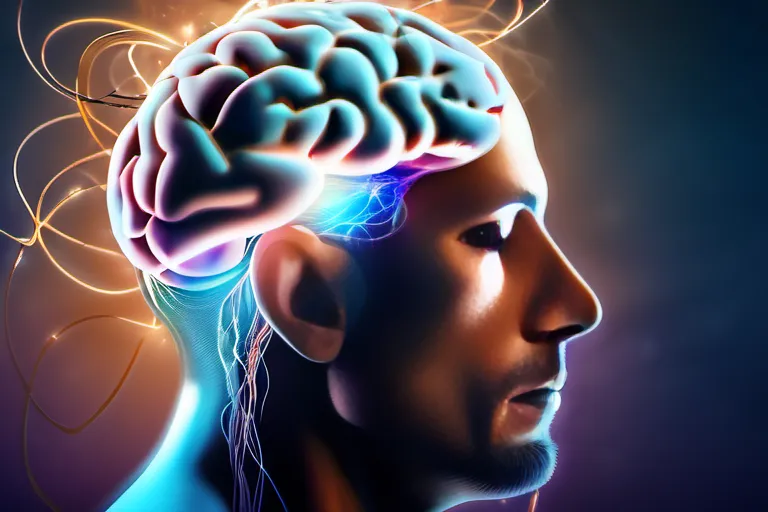Explore the philosophical, psychological, and neuroscientific aspects of free will.
Free will is a complex and fascinating topic that has been debated by philosophers, psychologists, and neuroscientists for centuries. In this article, we’ll delve into the various perspectives on free will, from the deterministic view to the libertarian perspective, and explore how our understanding of free will impacts our lives.
The History of Free Will Debates
Have you ever wondered about the nature of your choices? Are they truly yours, or are they predetermined by forces beyond your control? The debate over free will has been a cornerstone in philosophical discussions for centuries, with thinkers from ancient Greece to modern times contributing their ideas.
From Ancient Greece: In the fifth century BCE, Socrates and his followers believed that humans had the ability to make choices based on reason and moral virtue. Socrates famously claimed, ‘An unexamined life is not worth living,’ suggesting that self-reflection could lead to better decisions. Meanwhile, his student Aristotle argued for a more naturalistic view of human actions, emphasizing that habits shape our choices. Both philosophers laid down the groundwork for what would become two major schools of thought on free will.
Medieval and Renaissance: During the Middle Ages, thinkers like Augustine of Hippo integrated Christian theology into their discussions about free will, arguing that God’s predestination did not negate human choice. In contrast, during the Renaissance, Thomas Hobbes introduced a more deterministic perspective in his work ‘Leviathan,’ suggesting that all actions are ultimately determined by physical laws and external causes.
Modern Times: The Enlightenment brought new vigor to these debates. Immanuel Kant posited that individuals have autonomy and freedom of will, but he also acknowledged the influence of natural laws on human behavior. In recent decades, philosophers like Harry Frankfurt and Roger Ariew have continued this dialogue, exploring the complexities of free will in a world increasingly influenced by science and technology.
The journey through these debates reveals that understanding free will is not just about finding one answer but considering multiple perspectives. Each thinker adds depth to our understanding, making the concept as fascinating and complex as ever.
Determinism and Compatibilism
Understanding Free Will: A Comprehensive Guide
Imagine you’re walking on a crowded city street, deciding where to go next. Do your choices feel like they come from within, or are they predetermined by external forces? This question at the heart of free will has intrigued philosophers for centuries. Let’s dive into two key perspectives: determinism and compatibilism.
Determinism suggests that every event, including human actions, is caused by preceding events in accordance with the laws of nature. In this view, your decisions are not entirely yours; they’re shaped by factors beyond your control. It’s as if you’re a leaf caught in a stream, moving where the current takes you.
However, compatibilism argues that free will is possible even within a deterministic framework. This approach sees free will as compatible with determinism—meaning that your choices can be both determined and still yours to make. It’s like being able to steer a boat while it’s also drifting with the river; you’re influenced but not entirely controlled.
So, which view aligns better with our experience? Determinism seems cold and rigid, stripping us of any real agency. But compatibilism offers a more nuanced understanding, suggesting that free will can coexist with determinism by allowing for the influence of internal factors like desires and beliefs.
In exploring these perspectives, we uncover how complex the concept of free will truly is. Both viewpoints provide valuable insights into our journey through life, reminding us that while we may not always control every outcome, we do have a say in our choices.
Libertarianism and Hard Determinism
Libertarianism and hard determinism are two contrasting viewpoints on free will that often leave us questioning our very sense of autonomy. Libertarianism posits that humans have genuine freedom to choose actions based on their own desires and reasons, independent of any external factors. Is it possible for us to make choices without being dictated by circumstances or predestined outcomes?
Imagine a fork in the road; one path leads down a predetermined route, while the other allows you to freely choose your direction. According to libertarianism, at this fork, we have the power to veer off onto our chosen path. This perspective emphasizes individual agency and moral responsibility, suggesting that without free will, we are mere puppets dancing to an already choreographed dance.
Conversely, hard determinism argues against the existence of free will by asserting that every action is causally determined by preceding events in a mechanistic universe. Here, the question arises: if everything happens due to cause and effect, can we truly be held accountable for our actions? Are we not just products of our environment and genetics, with no real choice in what we do?
Both perspectives have significant implications for our understanding of human nature and morality. Libertarianism grants us a sense of control over our lives, allowing us to take responsibility for our decisions. On the other hand, hard determinism challenges this notion by suggesting that all actions are predetermined, stripping away any sense of free will.
Delving into these viewpoints reveals a complex interplay between philosophy and human experience. As we navigate through the intricate landscape of free will, questions linger: can true freedom exist without constraints? How do our beliefs about free will influence our everyday lives?
The debate between libertarianism and hard determinism continues to captivate thinkers across disciplines, from psychology to neuroscience. Understanding these perspectives is crucial in comprehending the multifaceted nature of human choice and its role in shaping our existence.
The Role of Neuroscience in Free Will
Imagine your mind as a vast, intricate city where every decision is like a journey through its winding streets and towering skyscrapers. How do we navigate this metropolis? Are our choices predestined paths laid out for us, or are they truly ours to make? Neuroscientific research sheds light on these questions by exploring the inner workings of the brain.
One key area in neuroscience is neuroplasticity, which suggests that our brains can change and adapt based on our experiences. This concept challenges the idea that free will is a static, unchanging trait. It’s as if each decision you make carves a new path into your brain, altering its structure over time.
Another significant aspect is neurotransmitter dynamics. These chemical messengers can influence our decisions and behaviors, yet they don’t control us entirely. They’re like the traffic lights in our city; they guide but don’t force movement. Our choices are still within our grasp to override or navigate around.
Functional magnetic resonance imaging (fMRI) studies further reveal that different parts of the brain light up when making decisions, suggesting a complex interplay of neural networks involved in free will. But do these lights flicker because we decide to turn them on or off, or are they simply indicators of what’s already been set in motion?
The debate rages on: if our brains are influenced by these chemical and physical processes, how can we truly be said to have free will? The answer might lie in the interplay itself—how we process and respond to these influences. It’s like navigating a maze where every turn feels significant, even as larger forces shape your path.
In understanding free will through neuroscience, it becomes clear that our decisions are deeply intertwined with biology but remain ours to make. This revelation doesn’t diminish the significance of choice; instead, it enriches our appreciation for the complexity of human agency.
Free Will and Personal Responsibility
How closely are free will and personal responsibility intertwined? Can we truly hold someone accountable for their actions if they had no choice in the matter?
Let’s delve into this complex relationship by considering a metaphor: imagine life is like sailing on an ocean, with free will as the compass guiding our journey. Personal responsibility is the rudder that steers us towards or away from ethical shores. If we lose control of either, our voyage becomes perilous.
In philosophical terms, the connection between free will and personal responsibility is fundamental to moral judgment. If a person acts without free will, how can they be held responsible for their choices? This question has puzzled thinkers for centuries, with some arguing that if we are truly determined by forces beyond our control, then assigning blame or praise loses its meaning.
From a psychological perspective, understanding this relationship is crucial. If individuals believe they have free will, it can significantly influence behavior and well-being. Research suggests that those who perceive themselves as having control over their lives tend to be more resilient, healthier, and happier. Conversely, a lack of perceived choice can lead to feelings of powerlessness and depression.
Neuroscientific studies add another layer of complexity. While these findings suggest that many behaviors are indeed influenced by neural processes, they also highlight the intricate interplay between environment, genetics, and free will. For instance, brain scans might reveal patterns associated with certain decisions, but do these patterns diminish our sense of agency?
It’s a delicate balance—free will providing the spark of autonomy while personal responsibility ensures we act ethically. Just as a compass helps navigate, understanding this relationship is essential for moral reasoning and societal norms.
As we continue to explore the depths of free will in upcoming chapters, remember: while the journey may be complex, the exploration itself enriches our understanding of what it means to be human.
The Future of Free Will Debates
As we delve into the future of free will debates, one can’t help but wonder about the profound implications that upcoming research might unveil. Are we mere puppets dancing to our destiny, or are we truly in control of our actions and choices? The philosophical quest for understanding free will has been a timeless inquiry, yet it seems like we’re standing on the brink of a new era where science and technology may provide us with answers that challenge everything we thought we knew.
Imagine a world where neuroscientists can predict our decisions before we make them. How would this change our perception of free will? Would it mean that every choice is predetermined, or could there be an unforeseen aspect to human decision-making? The psychological studies on determinism and free will suggest that our beliefs about free will significantly impact our behavior. If people believe they have no control over their choices, might they become more passive and less responsible?
Neuroscience holds the key to unlocking these mysteries. Advances in brain imaging techniques allow us to peer into the workings of the mind with unprecedented clarity. Researchers are exploring the neural correlates of free will, trying to understand how consciousness arises from brain activity. This raises a series of complex questions: Are our choices truly ours if they are influenced by external factors? Can we ever fully separate ourselves from these influences and make independent decisions?
As we move forward, it’s crucial to consider the ethical implications of our findings. If free will is an illusion, does that mean we should hold people less accountable for their actions? Or perhaps, understanding this could lead us to develop more effective strategies for rehabilitation and personal growth. The debate over free will isn’t just academic; it shapes how we view ourselves and others.
So, as we stand at the threshold of a new scientific era, what do you think will happen with our concept of free will? Will it remain an unattainable mystery or will we finally unravel its complexities? The future is uncertain, but one thing is certain: this journey to understand ourselves and our choices is far from over.
Conclusion

By the end of this article, you’ll have a deeper understanding of free will and its implications for personal responsibility, morality, and the nature of human agency. You’ll also gain insights into the ongoing debates surrounding free will and be equipped to engage in informed discussions on this important topic.











